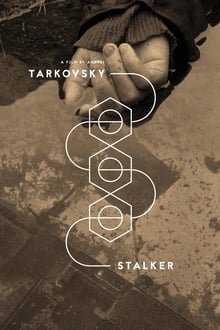
This really is the cinematic equivalent of "be careful for you wish for". Two characters - a teacher and a professor, seek out a "stalker" who can lead them through the maze of challenges that culminates in an heavily restricted area know as the zone. Why? Rumour has it, that when in that zone you may make wishes that will immediately come true. What is this place? Is it real, imaginary, alien, all of these - or it is all just a cerebral hallucination of a place that, like El Dorado, we imagine to be where all of our problems can go away, be solved, eradicated. It is loosely based on the Strugatsky brothers early seventies sci-fi novel "Roadside Picnic" but it's fair to say that Andrei Tarkovsky opens up the more linear aspects of their story leaving us with a much less defined and more intangible series of threads as these men undergo significant travails to get to a place - that frequently resembles what I imagine Chernobyl to have look like after it exploded. As with so many aspects of human aspiration, the narrative is all about what I would call the chase - the journey or the means - without the characters ever really knowing what it is they will truly want if they do actually achieve their goal. Again, the director provides us with lots of bits of this mischievous, sometimes perilous and thought-provoking Rubik's cube - but it is incomplete. We know it is always going to be. We, the audience, have to bring a bit of ourselves to this particular party. There is a denouement - three men in a room. One (Nikolai Grinko) with a hefty nuclear bomb that he believes may offer a solution; another (Anatoly Solonitsyn) who's darkest id well outmanoeuvres his ostensibly well meaning reasons for being there and of course the stalker himself (Alexander Kaidanovsky). This production is deliberately, and effectively slowly paced. The dialogue can be intense, their frustrations and dreams well encapsulated; but it can also be sparing - there are plenty of periods of protracted silences from them all. Accompanied by an eerily complimentary score from Eduard Artemyev, we are left with an experience rather than just a film. I saw it on a big screen, and if you can I'd recommend that. It helps you to stay focused on the complex and quirky plot whilst bringing out the finely crafted bleakness, and hope, of the photography.